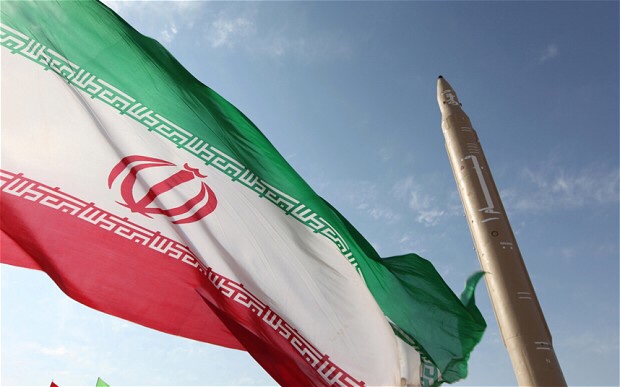 Iran opens new nuclear facility for centrifuge production
Iran opens new nuclear facility for centrifuge productionBy AMIR VAHDAT ASSOCIATED PRESS
TEHRAN, Iran — Jun 6, 2018, 4:02 PM E
Iran's nuclear chief on Wednesday inaugurated the Islamic Republic's new nuclear enrichment facility that is geared toward producing centrifuges which will operate within the limits of the nuclear deal Tehran signed with world powers.
Iranian state television broadcast an interview with Ali Akbar Salehi after nightfall, showcasing the facility at Natanz's uranium enrichment center.
In the interview, Salehi said the facility's construction began even before the 2015 deal was signed and that he hopes the first centrifuges — known as old-generation centrifuges — will roll out in a month's time.
In a gesture likely directed at the Trump administration's withdrawal from the deal, Iran on Tuesday informed the U.N. nuclear watchdog that it will increase its nuclear enrichment capacity, yet stay within the provisions of the accord.
The landmark agreement, which lifted crippling economic sanctions in exchange for Tehran limiting its uranium enrichment program, has been facing its greatest diplomatic challenges in the wake of President Donald Trump's decision to pull America out of it.
European nations and others involved in the accord are now trying to salvage it, and many companies that rushed to make billion-dollar deals with Iran now are backing out for fear of being targeted by U.S. sanctions.
Natanz, some 250 kilometers (155 miles) south of the capital, Tehran, includes underground facilities protected by some 7.6 meters (25 feet) of concrete, which offer protection from airstrikes.
Salehi's choice of Natanz to offer his speech came as no surprise.
The facility long has been a point of contention between Iran and the West since its public disclosure by an Iranian exile group in 2002. While Tehran long has maintained its nuclear program is for peaceful purposes, Western nations have feared Natanz represented a means for Iran to enrich enough uranium to produce atomic weapons.
The Stuxnet computer virus, widely believed to be an American and Israeli creation, caused thousands of centrifuges at Natanz to spin themselves to destruction at the height of the West's fears over Iran's program.
Under the 2015 nuclear deal, Iran agreed to store its excess centrifuges at Natanz under constant surveillance by the U.N. nuclear watchdog, the International Atomic Energy Agency. Iran can use 5,060 older-model centrifuges at Natanz, but only to enrich uranium up to 3.67 percent. Natanz was designed to have as many as 50,000 centrifuges operating there.
In Wednesday's interview, Salehi said mass-production for new-generation centrifuges will take years to be fully operational. "Every new generation of centrifuges needs eight to 10 years for testing," he said.
That low-level enrichment means the uranium can be used to fuel a civilian reactor but is far below the 90 percent needed to produce a weapon. Iran also can possess no more than 300 kilograms (660 pounds) of that uranium. That's compared to the 100,000 kilograms (220,460 pounds) of higher-enriched uranium it once had.
Iran also this week told the IAEA it had a "tentative schedule to start production of UF6," or uranium hexafluoride. Uranium hexafluoride gas is spun by centrifuges to make enriched uranium that can be used in nuclear weapons and atomic reactor fuel. That work is also restrained under the nuclear deal.
Earlier Wednesday, Iranian ambassador to the IAEA Reza Najafi told journalists in Vienna that Iran had given European nations "a few weeks" to come up with ways to protect the deal from America's pullout.
"These are the preparatory works for a possible scenario if in an unfortunate situation the (nuclear deal) fails then Iran can restart its activities without any limits," Najafi said.
"What I can say is right now, the negotiations at the expert level are continuing and we hope that it could reach some conclusion," he added. "Until then, we continue to exercise the most restraint but it is not (an) endless process."
French Foreign Minister Jean-Yves Le Drian warned Iran against restarting higher enrichment of uranium.
"It is always dangerous to flirt with the red lines," he said.
No comments:
Post a Comment